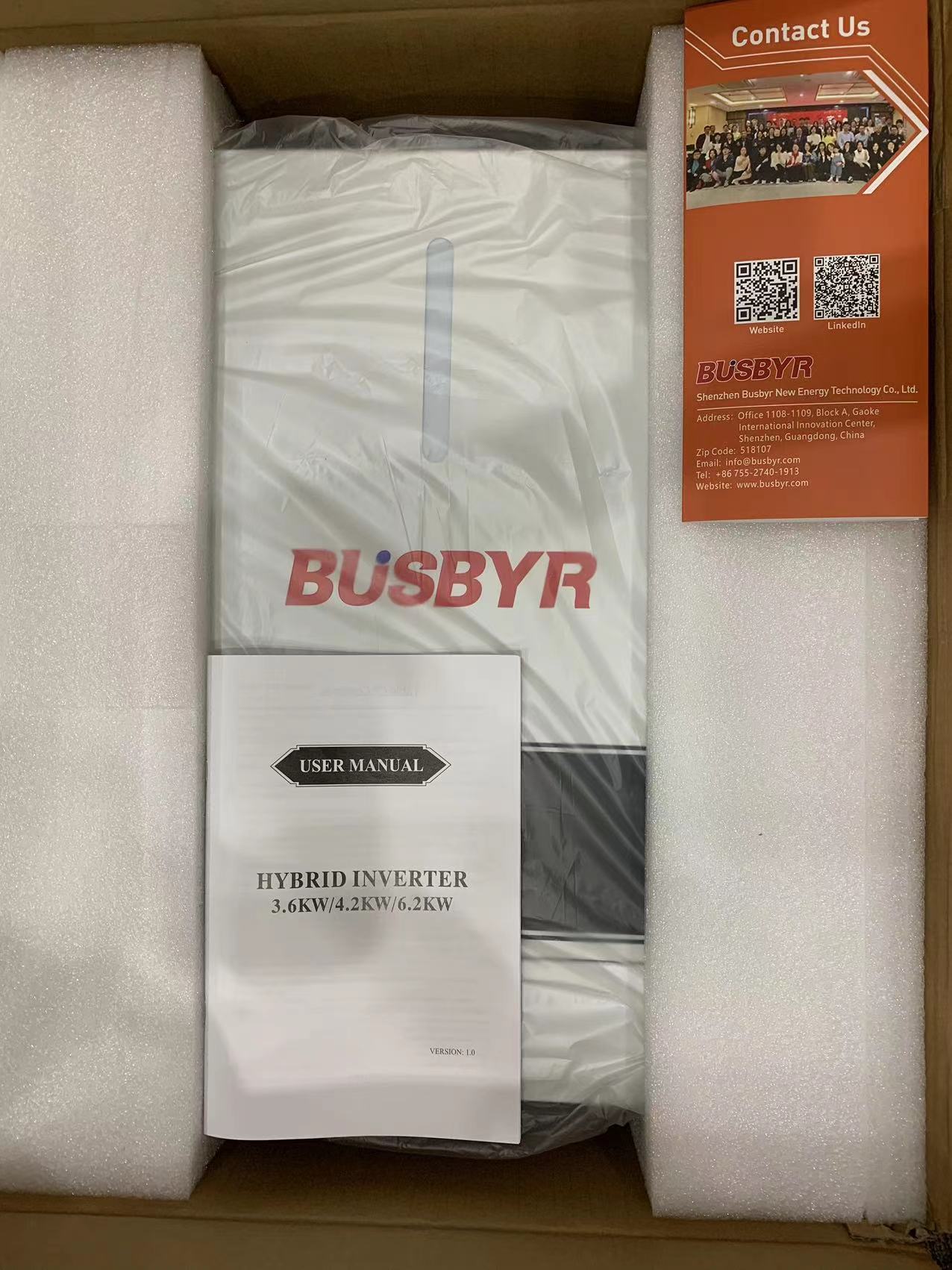News
How to choose a good inverter?
In terms of the output AC power, inverters can be divided into single-phase inverters and three-phase inverters. The single-phase inverter generates single-phase alternating current after inversion, while the three-phase inverter outputs three-phase alternating current. How to judge the quality of the inverter is mainly judged from the following criteria.
1. Check whether the output power is normal
The inverter converts the direct current generated by the solar panel into an alternating current output, and its output power is the key to judging the working quality of the inverter. How to measure the output power of the inverter? You can test whether the output amplitude and frequency of the inverter are normal by means of a multimeter, an oscilloscope or directly connected to the load. The obtained data needs to be compared with the production standard of the inverter. If the output power has a large deviation or no output, it means that there is a problem with the inverter.
2. Check whether the voltage is stable
Whether the inverter can work normally depends on whether its output voltage is stable. Inverters with poor voltage stability often lead to electrical equipment damage, short circuits and other problems. Therefore, it is necessary to use special test instruments, such as Multimeter, Oscilloscope, etc., to check whether the stability of the inverter sampling voltage and the output voltage meet the standards. If there are jumps, fluctuations or voltage instability, it means that there is a problem with the quality of the inverter.
3. Check whether the current is balanced
The balance of the current is also one of the key factors to judge the quality of the inverter. Inverter technology requires that the output current should be balanced. If there is current fluctuation or abnormality, it will lead to changes in output power and even damage to the inverter. Therefore, it is necessary to use professional testing instruments such as a power meter to detect the current balance of the inverter. If the current is unbalanced or fluctuates greatly, it means that the quality of the inverter is not up to standard.
4. Pay attention to the working environment of the inverter
The working environment of the inverter will also affect the performance of the inverter. For example, harsh working environments such as high temperature, high humidity, and dust will affect the heat dissipation and protection functions of the inverter, thereby shortening the service life of the inverter. Therefore, when selecting an inverter, it is necessary to consider its applicable working environment, install it reasonably according to the actual situation, and maintain and maintain the inverter regularly.
5. Check the cooling effect of the inverter
The inverter needs to dissipate heat to ensure its long-term stable operation. If the cooling effect is not good, the inverter is prone to failure. Therefore, it is necessary to pay attention to factors such as the ventilation of the inverter and the fan speed. At the same time, professional testing instruments such as infrared thermal imaging cameras can be used to detect the position and temperature distribution of inverter heating points to understand the heat dissipation of the inverter.

To sum up, judging whether the inverter is good or bad needs to be considered from multiple angles. Pay attention to check whether the output power, voltage, and current meet the standards, and pay attention to factors such as the working environment and heat dissipation effect of the inverter.
Since the inverter itself also consumes electric energy, a natural attribute of the inverter is that it cannot completely convert 100% of the DC power into AC. However, conversion efficiency is a standard for us to judge whether an inverter is good or bad. The GB/T20321 standard stipulates that in the rated output state, the efficiency of the inverter whose output capacity is not greater than 2kVA should be greater than or equal to 80%; the efficiency of the inverter greater than 2kVA should be greater than or equal to 85%.
The mutual conversion between AC and DC is one of the root causes of power quality problems. For example, in the process of converting AC to DC, the output DC may contain AC components, which may cause damage to electronic components. In the process of inverting DC to AC, the filtering is not thorough, which will cause ripple voltage to the DC at the input end and affect the efficiency of the input end. At the same time, it will bring a lot of power quality problems to the AC at the output end. Such as harmonics, unbalance, etc. Only comprehensive and meticulous testing can ensure the quality and performance of the inverter.


